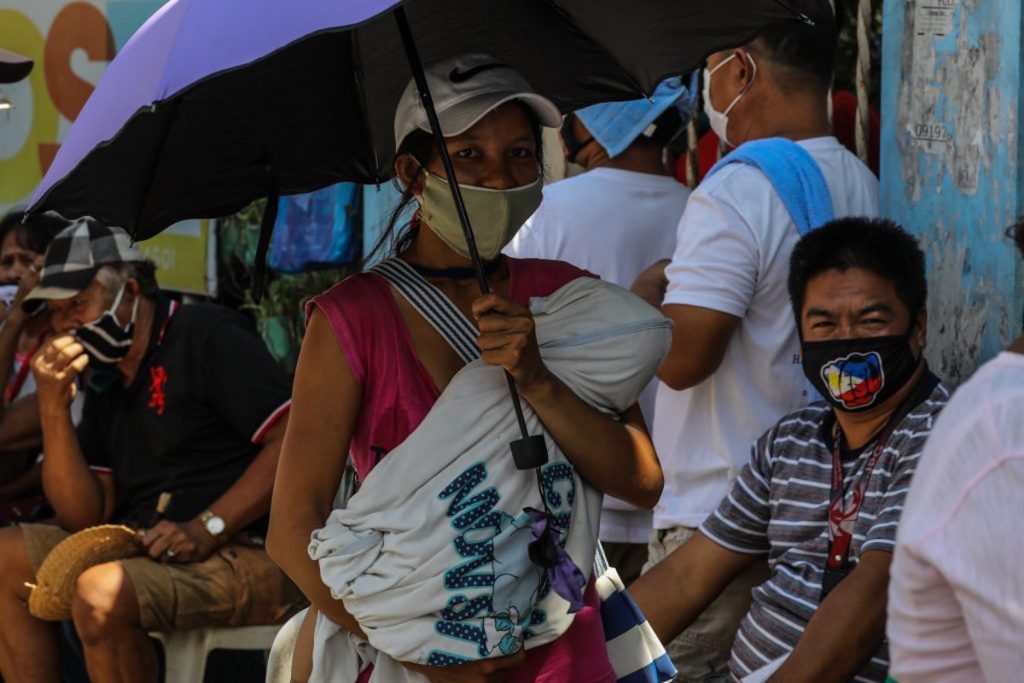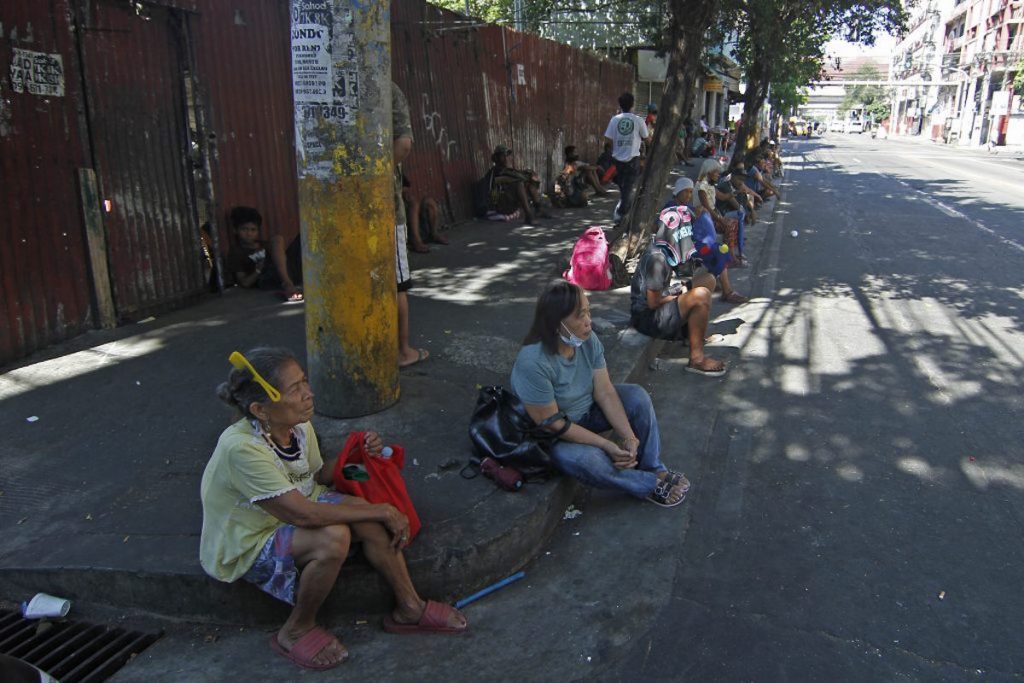In retrospection of the bleak events of the previous months surrounding this lingering and yet unresolved pandemic, our response as a nation may be described in two ways.
For a good number of us, the challenge has been met with heroic and creative initiatives, working with whatever is at hand.
However, for the rest, the challenge is a seemingly insurmountable burden, with our efforts being stifled by constraints in social movement and by the severe inadequacy of resources.
Our response — and the difficulties that came along with it — revealed how we sorely lacked the means to actualize effective mitigation measures. It will be remembered that in the critical first few weeks of this COVID war, it became vital for us to test suspected infection cases in order to isolate those who may potentially spread the virus. It also became vital for us to have adequate medical-treatment capacity for those confirmed to be infected.
Arresting the plague therefore depended primarily on our capability to quickly enact preventive or diagnostic actions; and corrective or curative interventions. But the limits of our resources eroded our chances of testing as fast as we should; and of preparing as many beds, equipment and medical personnel as needed.
The lack of money also had serious impacts on those of us who tried their best not to get sick. The constraints in movement were admittedly necessary to stem the spread, but not too many of us can afford staying long at home without working.
The Philippines is a country where a great majority of people are still trying to live on a day-by-day basis: almost everyone has to work in order to earn just enough to provide what one’s family will need in a 24-hour period. Our poverty cannot and will not give us the luxury to recollect and be rejuvenated for a few months, or even a few days.

Even our own government is poor. At this moment, by its own admission, it has already used up all the funds it can give for those who were unexpectedly unemployed by the quarantine; and by its own blunt assessment of our gloomy situation, it is prepared to gamble on a rise in COVID cases in favor of an opening of the economy, if only to neutralize and alleviate the repercussions of our impoverishment.
Our poverty is a curse. Our constant struggle for material needs has slowly extinguished our quest for life’s deeper meaning and purposes — we simply don’t have enough time for it. But in such a time when the entire world is fighting and competing in a game of “survival of the fittest country”, then the poverty of a poor country has become a death-sentence.
When the Titanic hit the iceberg and there were only enough lifeboats for the rich, then the poor were doomed.
How did we get to be so poor? How did we come to this perilous historical precipice in which even an invisible virus can actually bring about our total downfall, only because of our hopeless destitution?
The Church in its social teachings has taught on the ramifications of the past that created the ethical dilemma that poor countries are now faced with.
The Philippines belongs to an economically distinct segment of the community of nations known as the “Global South” — or what used to be called as the “Third World”. The South refers to the former colonies which today are sovereign states that have either won or have been granted their geopolitical independence from their colonizers within the latter half of the twentieth century; the Philippines is one such country who exercised self-government only in 1946.
In need of economic stimulation — and burdened as well by a lack in technological infrastructure, by fragile or flawed democracies, and by inflexible and corrupt bureaucracies oftentimes controlled by oligarchies of the local elite — they turned or have been induced to turn to their much more affluent previous colonial masters, also known as the developed “Global North” for assistance in catalyzing industrial growth.
The North — through the international institutions and large transnational corporations established in these countries — are investing heavily in the undeveloped South under the pretext of “aiding their development” by sourcing the latter’s resources as inexpensive raw materials and labor to efficiently create products and services at significantly higher profit margins.
Moreover, the North — supported in the South by collaboration with the local oligarchies and by protection of the governments through favorable legislation — are pushing for the continued dependence of the South on their products and services under the guise of “globalization” by aggressively promoting the need for their outputs’ compulsory industrial use, or by subtly marketing their social structures and culture characterized by excessive consumption and ubiquitous materialism.
The historical irony of a superficial geopolitical independence resulting in an unfortunate and deeply-ingrained socio-economic dependence — also termed as a “new colonialism” or neocolonialism — has caused an imbalance of trade and a widening disparity of wealth and advantages between the rich “former colonists” and the poor “former colonies”.

The South thus caught in a vicious cycle of systemic exploitation and ever deepening impoverishment are not only economically disadvantaged, but also politically disadvantaged in the arena of participative decision-making on key international issues. Poverty in the South has never been dramatically overcome, consequently increasing vulnerability, stifling opportunities and causing serious uncertainties in the employment of its workforces, and interestingly driving many of them to look for brighter futures in the North.
This model of causation which provides clear yet often-disputed antecedents for the global problem of inequality between countries, forms the basis for the Church’s consistent contention that the effects of such inequality in the disadvantaged South, must be attributed not only to the actions of its privileged few but also to the actions and complicity of the advantaged North.
According to the proceedings of the 1980 conference of the Ecumenical Association of Third World Theologians (EATWOT), poverty is not a spontaneous occurrence and that the injustice that causes it, cannot simply be dismissed as the inevitable “side-effect” of history or of a system of geopolitical relations for which nobody can be blamed.
Pope Francis warns in his 2013 apostolic exhortation Evangelii Gaudium:
The need to resolve the structural causes of poverty cannot be delayed, not only for the pragmatic reason of its urgency for the good order of society, but because society needs to be cured of a sickness which is weakening and frustrating it, and which can only lead to new crises. Welfare projects, which meet certain urgent needs, should be considered merely temporary responses. As long as the problems of the poor are not radically resolved by rejecting the absolute autonomy of markets and financial speculation and by attacking the structural causes of inequality, no solution will be found for the world’s problems or, for that matter, to any problems. Inequality is the root of social ills. (Evangelii Gaudium 202)
Poverty has been and has always been inflicted upon those who have the least resistance, and that those who have benefitted from this exploitation, are seriously challenged to take responsibility and to cooperate if not initiate the efforts toward structural change.
Brother Jess Matias is a professed brother of the Secular Franciscan Order. He serves as minister of the St. Pio of Pietrelcina Fraternity at St. Francis of Assisi Parish in Mandaluyong City, coordinator of the Padre Pio Prayer Groups of the Capuchins in the Philippines and prison counselor and catechist for the Bureau of Jail Management and Penology.
The views expressed in this article are the opinions of the author and do not necessarily reflect the editorial stance of LiCAS.news.






